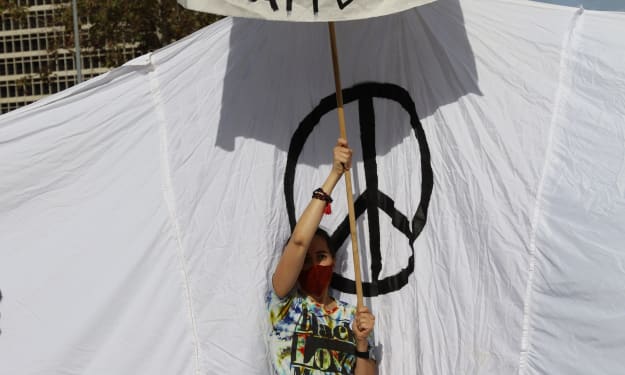
I have always been very into politics but never vocal about it; we all know that its taboo to talk about, well it was previously. After looking into social justice topics, racial sensitivity training in the workplace stood out. According to a study by Research Roundtable on Gender and the Economy held, states that diversity training could be not as practical for employers. It also noted that racial sensitivity training could be due to more harm in the workplace than good.
Since we are now in a climate where racial tension is high, we have to think about workplaces and how minorities are being mistreated. If you believe that it is just going on in the streets with the police, it’s not. Education, Healthcare, obviously, Politics are more are affected by racism in the workplace, and some conversation needs to happen, no longer being dismissed. Not just EEO rules and regulations. Let’s start with personal experience about employment discrimination, and then we will bring it full circle and talk about the pros and cons of racial sensitivity training.
Racial Discrimination in the workplace:
The year was 2014, and I was working in Research at the Presbyterian/St. Lukes Hospital. All my personal experience and how discrimination by this company, a partner of HealthOne, and how HR covered it up and pushed me out the door of employment. How did racial sensitivity training get brought to the table was due to the confirmed racism. That not only myself experienced but other co-workers of color as well? The woman I worked with admitted to being a redneck even to HR. That isn’t so much the issue because that does not make her a racist.
However, she was homeless, and I tried to help get her housing by someone I knew was looking for tenets. However, the apartment’s location was in an area where my friend, Mexican, was in an interracial relationship. She told me she was dealing with drama but that my white co-worker should be fine in the area. Once I explained to my co-worker, her response was, “they probably don’t want monkies and silverback gorillas in their neighborhood.” That was not the first racist remark she said, but she did admit to HR that she said that statement, and then proceeded to state, “is a redeck and that is how she talks.”
Later, she made another comment about another person of color who walked into work to clock in. My assumption at the time was she did not see the co-worker who walked in. So, I let her know who the co-worker was, who was also a person of color. My racist co-worker’s response was, “well, you know, all you black people look alike.” All racist comments said were in front of a room of people; these racist comments expressed in a place full of other co-workers who heard her. Not to mention “Ms.Redneck” admitted to HR that she said all the above and never denied it.
Human Resource Response:
It was myself, the black woman who was brought in the office to meet with human resources, not as the person who was a victim to hate talk but the problem to the hate talk. The response from human resources was, “I was the one gossiping,” minus the fact the woman said the racist remarks in a room full of people other than myself or other black people, white counterparts were there as well who heard her. To add insult to injury, the racist woman admitted to the very HR people that she said those statements.
Yet, I am the one who was “gossiping.” I was forced into an apology because “THEY” felt that I was the problem. No discipline, the action was placed upon me, but I was forced to find another job. The racist woman was doing drugs and getting caught, late to work, sleeping on the job, which was still not enough to fire her. I ended up going above human resources and reporting it to the ethics line. After being called the problem, yet I was not saying racist slurs, I would not stop. As I said to them, if I were at work using racial talk or slurs, my black ass would be fired with no question. Yet, the racist woman did not face any disciple action through human resources.
Ethics Meeting:
The Ethics helped as much as possible, but I gave up the fight because looking at people who look nothing like me is not going to help me, feeling my only option was to leave my job and look for somewhere better. It is impossible to work in an environment where others hate you because of your skin. The treatment you face is less than, you will always be at fault, and your payment will never match your non-colored counterparts. However, the woman in ethics had it out for the women in Human Resources, but as a black woman, I know, we know, that whatever their fight did not benefit my agenda for the racist slurs that were said to me.
The agenda is personal between those two departments. I was not going to help one party who does not have my best interest in heart assist human resources has shown they could care less if a white woman is saying racial slurs in their establishment. The ethics department came up with the idea to have the racist co-worker take a racial diversity course in the workplace. According to a mutual friend who stayed at the job after I left and took the racial diversity course, her thoughts were that it was a joke and a waste of time.
Racial Sensitivity Training:
The explanation that I got from it is educating others on interacting with people of other cultures and races. The goal is to reduce prejudice or bias in the workplace. Using your communication skills and increasing your knowledge to learn more about the people your workaround. Also, racial sensitivity training touches lightly on dealing with these types of conversations or situations in the workplace amongst co-workers.
Thoughts:
As someone that had to experience a very well proud racist go through this training, I would agree that it is a joke. If you are going to have any diversity training, you should probably have the presentation delivered by those who can relate because they would be the better option to educate from personal experience. It is hard to get across to someone “prejudice,” “discrimination,” and more if the person who is “educating” has not walked a day in those shoes; they were just given the same tips from someone else who does not know what they are talking about it. A textbook can not educate anyone on racial sensitivity, diversity, and how to interact with those with language barriers and more. The only education you can learn to be a “better you” or “better employee” is learning and being educated by those who have lived through it and can give you multiple outlooks on a company joining together to understand the needs of those of diversity.
Have you experienced racism, discrimination in any form in the workplace? Was diversity training offered? Do you have an idea to bring racial sensitivity training to a cooperate world that actually would make a change, especially in our current climate?
About the Creator
Nia on Air
Mental Health Survivor, Poetry Lover, Thought Speaker, Truth-Teller.
IG: @NiaOnAir_
Website: Niaonair.com






Comments
There are no comments for this story
Be the first to respond and start the conversation.